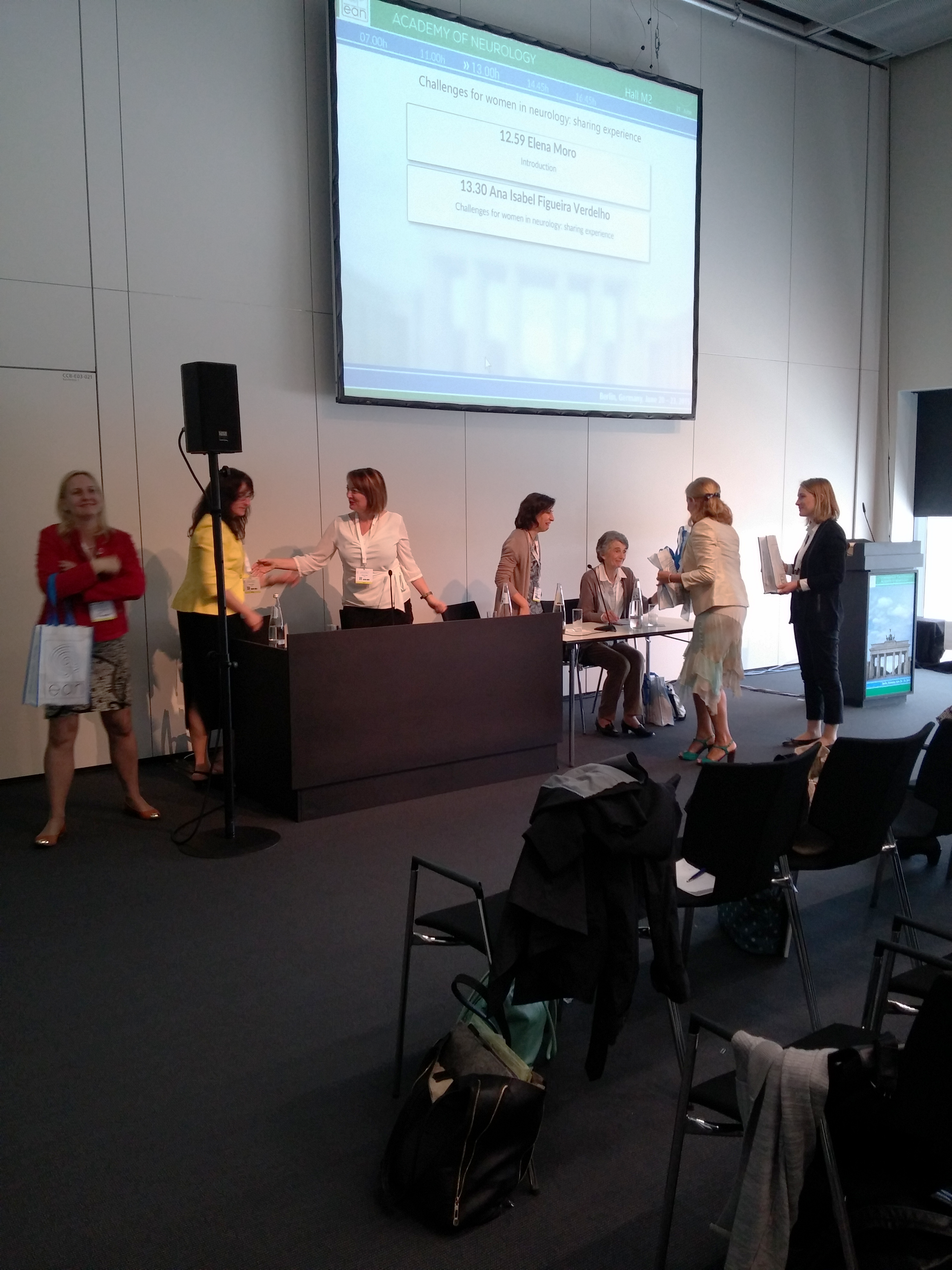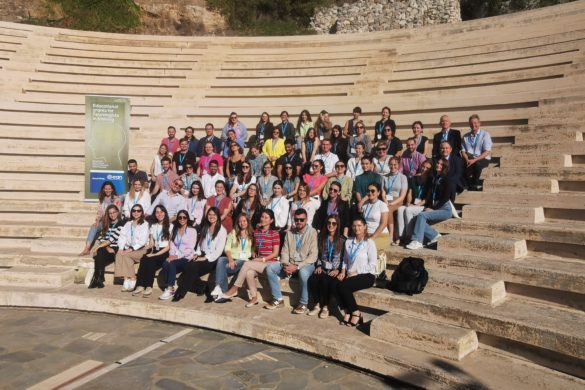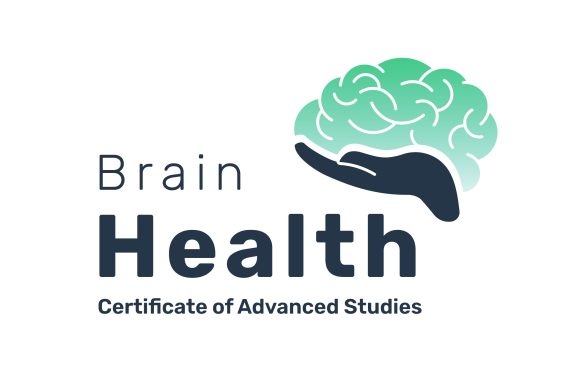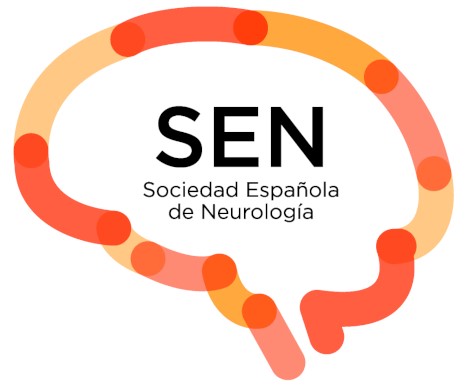by Elena Moro, Antonella Macerollo and Anna Sauerbier
The 1st Congress of the European Academy of Neurology took place in Berlin, Germany, between the 20th and 23rd of June 2015. Among the several social and scientific appointments, a new event was included in the programme: “Challenges for women in Neurology: sharing experiences”. It was an innovative idea in the European Neurology background. The meeting was held on 21st June 2015, aimed at overcoming the challenges that women often find during their academic as well as hospital career development in neurology.
Successful female colleagues in neurology and neuroscience shared professional and personal experiences related to their career route.
Prof. Angela Vincent, Professor of Neuroimmunology at the University of Oxford (UK), spoke about her first experience in medical school and, then, the choice to dedicate her life to science. She recommended young women to be efficient at work and keep focused on the aims in their career regardless awards. Indeed, rewards can come in the course of ones life, but it is not automatic that they come soon. Thus, “be patient and do the best you can do!” Furthermore, she shared the personal experience to have had four children. Even with these family duties, she suggested to stay updated and connected with the research world. To this regard, she decided to take just six weeks of maternity leave for each child.
Prof. Dorota Religa, Associate Professor of Neurology at Karolinska University Hospital, Stockholm (Sweden), discussed about different ways to approach our job and solutions concerning relationship between men and women colleagues as she has learnt in her experience with PhD students. Importantly, she focused on the importance of finding practical solutions to help women doctors and scientists to deal with the difficulties in career. Especially, she spoke about the choice of her department, for instance, to employ more female nurses to cover the potential multiple maternity leave. This choice worked well and brought also a financial gain.
Prof. Valeria Caso, Associate Professor of Neurology at the University of Perugia (Italy), highlighted the current situation of female scientists, who can be still excluded from medical research. Furthermore, she reported her experience in the stroke field and discussed the difficulties of female stroke patients to find the right way to be treated after the acute phase of the stroke. In this regard, she has founded a specific group of support for female patients whithin the European Stroke Organization.
Prof. Ana Verdelho, Invited Professor of Neurology at Lisbon University (Portugal), shared her positive experience in medical science and highlighted the importance of a supportive mentor in the early stage of careers. It is important for a woman neurologist/neuroscientist to have help and support by the tutor and the team to deal with the issues that can be found, especially in their child-bearing periods.
Several female colleagues in the early stage of the career as well as in advanced steps of professional development attended the meeting. Gratefully, the session was enriched by the professional experience of two Egyptian neurologists. They shared the difficult situation of being women, who want to pursue in academic career in their country, without any type of support.
In the second part of the meeting, an open discussion has seen the participation of all attendants. Importantly, it was a common thought that, although the number of women in training and in entry-level academic positions in medicine have increased substantially in the recent years, the proportion of women in senior faculty positions has not significantly changed.
 In conclusion, our meeting highlighted the need to ensure equal opportunities for women neurologists in academic and hospital appointments and promotions. Indeed, the important disparity between the proportion of women enrolled as students in medical schools and the proportion of women who hold senior faculty positions may discourage women from pursuing academic careers in the future.
In conclusion, our meeting highlighted the need to ensure equal opportunities for women neurologists in academic and hospital appointments and promotions. Indeed, the important disparity between the proportion of women enrolled as students in medical schools and the proportion of women who hold senior faculty positions may discourage women from pursuing academic careers in the future.
We really hope that this meeting can be just the first of regular series of events supported by EAN to develop connections, supports and collaborations among women neurologists from different countries.












